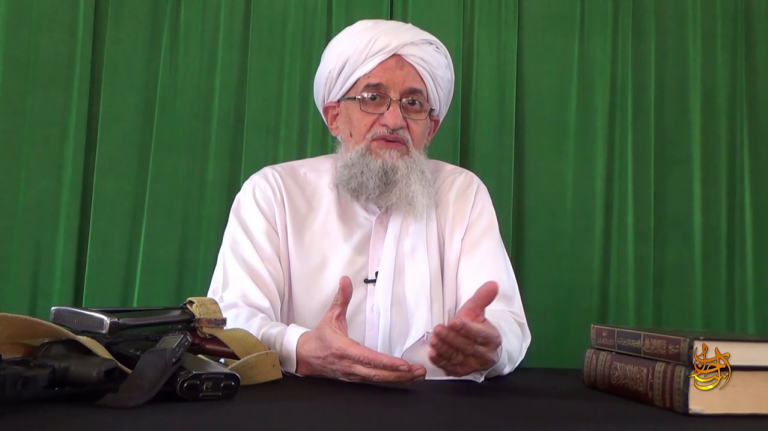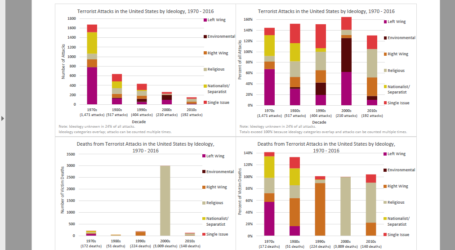The attacks in Sri Lanka and the threat of foreign fighters
The Islamic State has claimed responsibility for the horrific terrorist attacks on Easter Sunday on churches in Sri Lanka, which killed over 300 people. It appears that the group may have worked with a local radical Islamist group, National Thowheeth Jama’ath, mixing the resources and capabilities of both. Initial reporting—still to be verified—indicates that many of those arrested in the follow-up sweep had fought in Syria. Early reports are often wrong or exaggerated, but if Sri Lankan foreign fighters played a significant role in the terrorist attacks, this would be the largest killing by foreign fighters linked to the Islamic State ever, and the largest foreign fighter-linked attack since 9/11. The attacks suggest both the danger posed by foreign fighters and the importance of government efforts in stopping them.
When individuals leave their homes and travel to a foreign war zone, they often change profoundly. The travelers usually train and fight, and they often emerge more skilled as a result. In some cases, as with those who went to Afghanistan in the 1990s, individuals may go through multiple training courses and learn highly specialized skills. In others, they often learn only the basics of combat, but that combat experience gives them greater skill and discipline—if they survive. Such experience may explain the jump in lethality for Sri Lankan jihadists, who before the Easter attacks had not carried out mass casualty terrorism. Coordinated attacks are more difficult than one-offs, and National Thowheeth Jama’ath’s track record had consisted of vandalism against Buddhist statues and low-level communal violence. In addition, the suicide vests used in the Sri Lankan attacks all worked—a rarity for many terrorist groups—and in general showed a high degree of sophistication according to Scott Stewart, a terrorism expert. This suggests that the individuals were well-trained and equipped.
In addition to becoming more skilled while abroad, individuals are indoctrinated. They may leave their homes because they have a particular desire to live in a caliphate or fight infidels in a foreign land, but while there they imbibe the ideas of the group more fully, taking on new enemies. The Sri Lankan attackers may have left their home with little animosity toward their Christian neighbors but learned to hate while abroad. Finally, the process of traveling abroad and joining a radical group to fight can form networks. Individuals with jihadist leanings meet like-minded radicals, including those from other regions in their home country, and forge connections that can last for decades. These connections facilitate attacks and future waves of foreign fighters.
The Syria conflict produced a record number of jihadist foreign fighters—more than Afghanistan, Somalia, Iraq after 2003 and other such conflicts combined. Western attention has understandably focused on the large number of foreign fighters (over 5,000) emanating from Europe and the potential danger they pose. Equally striking, however, is the geographic range of the volunteers. Nationals of more than 50 countries participated in the Syrian conflict alongside the Islamic State, with Trinidad sending over 100 (more than the United States) and the Maldives suffering one of the world’s highest per-capita rates. Reports of volunteers from Sri Lanka numbered in the dozens, but countries with less capable security services that are focused on other threats, like those of Sri Lanka, often do not know the extent of the problem.
Despite the huge overall flows of foreign fighters, the U.S. and European experience suggests that the foreign fighter threat can be reduced through better counterterrorism. In the United States, foreign fighters have not conducted a successful terrorist attack since 9/11—the domestic attacks that have occurred were carried out by individuals or small cells inspired by the Islamic State or other groups but not controlled or orchestrated from afar. Europe has seen several bloody incidents, notably the 2015 Paris attacks, but even there the role of foreign fighters has been eclipsed by that of more homegrown extremists in recent years. Part of this shift is because of the successful U.S. military campaign against the caliphate’s heartland in Iraq and Syria, which helped drive the Islamic State underground and, by killing many leaders or forcing them to hide, made it more difficult for the group to plot attacks. Intelligence cooperation has proven vital, with the United States and its allies working closely to share information on terrorist travel, identities and other important data, and disrupting cells around the world as a result. European states have also become much more aggressive at home, increasing the budgets of their security services and passing new laws to increase their power to combat terrorism. Even Belgium, long considered one of the less-prepared European countries, has greatly expanded its counterterrorism efforts.
Sri Lanka, however, shows how a failure to prepare can be deadly. The country’s security services had considerable advance warning of a potential attack, including names, addresses and phone numbers of members of the suspected group involved in the attack. India reportedly provided considerable information based on its own Islamic State investigation. The Sri Lankan government even had warning that Catholic churches were among the possible targets. In case they were tempted to dismiss all this, weeks before the Easter attack, they found detonators, explosives and other clear indicators that attacks were being planned. What explains this remarkable intelligence and security failure is not yet clear. The Sri Lankan government itself was highly divided and information may not have been properly shared as a result. In addition, Sri Lanka’s historical focus was on Tamil terrorism rather than on Muslim-Christian violence. An investigation into the government’s handling of the attack is necessary to determine why the security services failed to act on what initial reports suggest was clear warning of an imminent attack.
After the devastating attacks, Sri Lanka will no doubt prioritize combating the foreign fighter threat and the Islamic State in general. Other countries with a significant number of foreign fighters must do the same. Steps range from increasing intelligence collection to passing laws that ensure proper prosecution of suspected terrorists and returning fighters. Global intelligence sharing is also vital, and countries must be open to cooperation even when it does not directly involve their own nationals. The Trump administration’s offer of investigative and technical help to Sri Lanka from the FBI is a good start.
If anything positive comes out of the horror and bloodshed of the Easter attacks, it may be the dispelling of any illusion that an Islamic State in retreat is completely powerless. Greater attention now can reduce the danger from other Islamic State veterans, and may pay dividends in future years when new threats arise.




